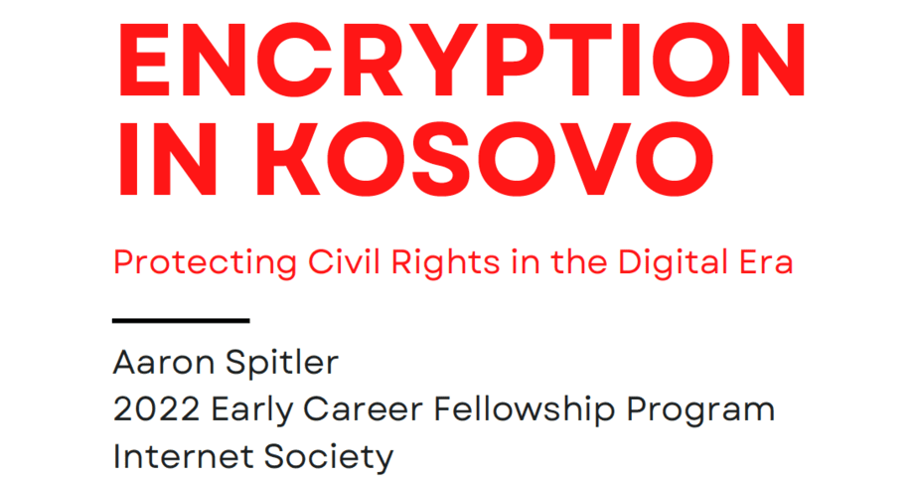Encryption in Kosovo: Protecting Civil Rights in the Digital Era
From the summary of the report:
Encryption tools have been viewed as a means of guaranteeing the fundamental rights of connected citizens. However, in the case of Kosovo, those shaping policy have not maximised the potential of these technologies. This report brings attention to this critical issue, outlining how stakeholders across all sectors can take action to protect the freedoms of citizens. The paper begins by outlining how cryptographic techniques have been used to defend civil liberties while also contextualising them in the Balkan country. The following segments are devoted to unpacking relevant Kosovar law, comparing these existing measures to the European Union (EU)’s General Data Protection Regulation (GDPR). A supplemental table offers details on these key statutes, highlighting specific areas where policy measures could be better aligned with EU standards. Finally, the report ends with a set of recommendations that major actors could consider to uphold the rights of Kosovars in our digital age.
This report was prepared by Aaron Spitler for the Internet Society’s 2022 Early Career Fellowship Program. The opinions expressed in this piece are the author’s own and do not reflect the views of the Internet Society, Jožef Stefan Institute, and Open Data Kosovo. Written consent is required for the reproduction of this publication by any third party.
Please find the report here.
